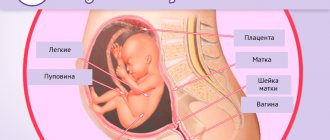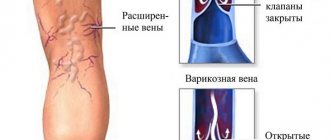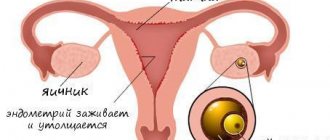Nowadays, and especially in a metropolis, even a nutritious diet does not provide the expectant mother with the “set” of vitamins that are needed for the development of the baby and the normal course of pregnancy.
According to statistics, vitamin deficiency is observed in 7-8 out of 10 expectant mothers. You can protect yourself and your baby from problems associated with a lack of vitamins by taking vitamin complexes.
The main thing is to know what to drink, in what dosage and for how long.
What vitamins are especially useful during pregnancy for the expectant mother and fetus?
A balanced diet is the basis, and you cannot deviate even one step from a proper diet during pregnancy.
But the need for some vitamins in an expectant mother always increases, and not all of them can be obtained from foods (especially during toxicosis). Before buying anything that suits the occasion at the pharmacy, you should consult a doctor .
Only a specialist will be able to say exactly which vitamins will be superfluous and which ones you can’t do without. Remember that an excess of vitamins can be even more dangerous than a deficiency!
What if you are a vegetarian?
Ethical beliefs always involve personal choice. But you share the pregnancy period with a baby who is in dire need of adequate nutrition with a variety of vitamins, microelements, amino acids and fats. By depriving yourself of meat, you are putting your baby at risk without even giving him a chance to taste variety. And supplementing microelements with vitamins is akin to artificially “fertilizing” the body.
What is more important for the expectant mother is not a healthy diet (which may be a vegetarian diet), but a balanced one! Giving up meat is not a balance. You cannot substitute B12 from pork B12 from chicken yolks if you are vegan. It will not be possible to compensate for the lack of protein from milk, meat and fish with protein from beans and tofu. But folic acid from bananas cannot replace that found in beef.
Whatever decision you make, voice it to your doctor, who, based on your and your child’s weight norms, test results and ultrasound, will draw a conclusion about the usefulness or inadequacy of such a menu and prescribe vitamins.
Especially useful vitamins - what can an expectant mother not do without?
In the 1st trimester:
- Folic acid. You should drink it already at the stage when you are just planning a baby. As a last resort - immediately after you see the long-awaited (or unexpected) “2 red stripes”. Timely intake of vitamin B9 is the prevention of hypovitaminosis, protection against accidental injuries to the baby’s spine, a “brick” in the construction of the psyche of the future baby. Lack of B9 is fraught with developmental defects. What foods to look for: beef and chicken liver, spinach and lentils, asparagus. Daily dose – 400-600 mcg. Important: green tea significantly reduces the absorption of B9!
- Pyridoxine. One of the main assistants in relieving nausea, reducing nervousness and eliminating muscle spasms and cramps. And from the 8th week of pregnancy, vitamin B6 is also needed by the fetus for the development of the central nervous system.
- Vitamin A . It is an important component for fetal growth, vision, skeletal and nervous system development. Important: exceeding the dose is fraught with heart disease and problems in the children's nervous system! What foods to look for: fish oil and liver, as well as vegetables/fruits in red/orange colors. Remember that vitamin A (as fat-soluble) should be taken with sour cream or yogurt.
In the 2nd trimester:
- Vitamin D. The child’s body is almost created, and for the rapid beginning growth of the fetus, substances for the growth of bone tissue and the heart, as well as for the prevention of rickets, are extremely necessary. In addition, this vitamin promotes the proper distribution of calcium and phosphorus. In the summer, it is quite possible to do without vitamin D (it is produced in the body independently), but in winter, with a lack of sunshine, taking it is mandatory. What foods to look for: fish oil, red fish, egg yolk, milk and butter.
- Tocopherol. This vitamin contributes to the correct functioning of the placenta, which, when it ages, often causes miscarriage. In addition, vitamin E is needed for metabolism and will not interfere at the planning stage to balance the monthly cycle. What foods to look for: oils, peas, rose hips, tomatoes.
- Iodine. It is usually prescribed in the 1st half of pregnancy, unless, of course, there is a history of thyroid disease. Iodine is needed for metabolism, prevention of rapid weight gain, weakness, brittle hair, etc. What products to look for: sea salt, seaweed (including dried), sea fish. Daily dose – 200 mcg.
In the 3rd trimester:
- And again pyridoxine. At this stage, the fetus grows rapidly, which contributes to the appearance of edema. Vitamin B6 will help prevent swelling.
- Iron. With its deficiency, a decrease in uterine tone, the appearance of muscle weakness and the development of anemia are observed. What foods to look for: veal, fish and chicken eggs, as well as pork and beef, turkey and rabbit meat. Less tea and coffee - they reduce the intensity of iron absorption. If you drink it with natural juice (vitamin C will speed up its absorption). Daily dose – 30 mg.
- Vitamin C. It is necessary in the 1st and 3rd trimesters for the full development of the placenta, protection of maternal immunity, and formation of fetal/egg membranes. What foods to look for: citrus fruits and sauerkraut, greens and potatoes, black currants.
- Calcium. Any mother knows about the need for this element - it is needed for the proper development of the kidneys and the child’s skeleton. You can, of course, load up on cottage cheese with sour cream and cabbage, but you still won’t be able to get as much calcium as you need - you should take it additionally. Important: coffee and carbonated drinks interfere with the full absorption of the element, switch to other drinks. Daily dose – 250 mg.
Features of the diet: food in the early and late stages
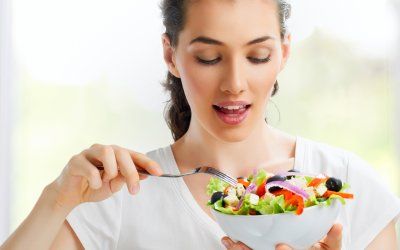
In the early stages of pregnancy, the vital systems and organs of the child are formed.
For this reason, a woman’s diet should be varied and balanced to ensure the supply of all the necessary vitamins and microelements for the full development of the embryo.
In the first months, many pregnant women suffer from toxicosis.
To prevent attacks of nausea, stick to split meals (snacks every 2-3 hours) and try not to eat dishes of different consistency in one meal (bread with compote, soup and stew).
In late pregnancy, your growing baby needs high amounts of nutrients, so your overall caloric intake should increase slightly.
Also during this period, the child’s own immunity is formed, so potentially allergenic foods (citrus fruits, honey, chocolate, exotic fruits) should be removed from the pregnant woman’s diet.
N. Samoilenko, nutritionist, consultant at Pampers Active Baby Forum

The first thing a pregnant woman should avoid is alcohol in any form; much has already been said about the dangers of such a product. In second place are black tea and strong coffee.
I also do not recommend getting carried away with trans fats, which are found in confectionery, candies, processed cheese, store-bought ketchups and mayonnaise.
For pregnant women, issues of the benefits and safety of products should be a priority, so you should not take risks with popular rolls or mushroom dishes.
S.Yu. Buyanov, experienced obstetrician-gynecologist, head of the birth. department
A course of additional vitamins and minerals is simply necessary for the expectant mother and the health of the child. Alas, even a wide variety of seasonal vegetables and fruits cannot provide the body with sufficient nutrients, especially during pregnancy.
The selection of a vitamin complex should be approached as carefully and thoughtfully as possible - an excess of certain substances in the body is just as dangerous as a deficiency. In this matter, do not do anything on your own; strictly follow the recommendations of your gynecologist.
D.G. Sulzhenko, nutritionist, popular fitness trainer
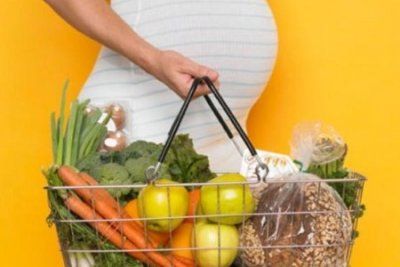
Nutrition affects not only the course of pregnancy, but also affects the process of childbirth. No matter how strange it may sound, the best advice for an expectant mother is to make an appointment with an experienced nutritionist.
A qualified doctor will help you figure out the optimal diet during pregnancy, taking into account your state of health and your current well-being.
Find out what are the recommended healthy foods for pregnant women:
Remember, that…
- vitamin E until birth, as well as calcium and iron. But they should be taken separately.
- Vitamin C promotes better absorption of iron.
- Zinc and copper should not be taken together with iron.
- Vitamin D will improve calcium absorption.
And most importantly, do not prescribe vitamins for yourself! Contact your doctor and strictly follow the dosage regimen.
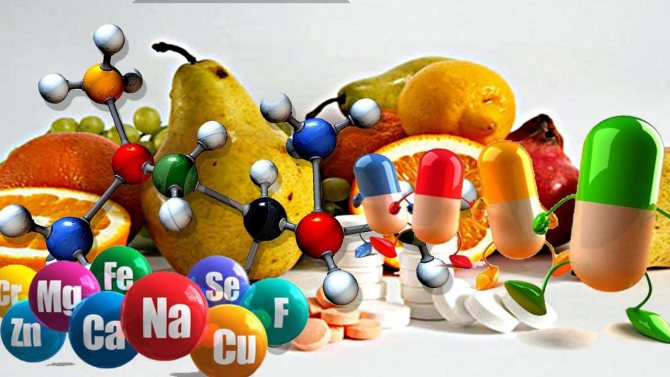
Benefits and harms
What are the benefits of eating meat?
Let's consider its main advantages:
- Meat products contain large amounts of protein.
- Red meat is the leader in iron content, which is necessary for the synthesis of hemoglobin.
- The minerals that meat products are rich in regulate blood sugar levels, help normalize metabolic processes, and also ensure the proper functioning of the entire body.
With excessive consumption or the wrong choice of cooking method, meat can turn from a useful product into a harmful product. For example, even diet turkey or chicken can become fatty and carcinogenic if it is cooked in a frying pan with a lot of oil or smoked.
What else do you need to remember?
- Iodine will be prescribed to the mother separately. The norm is 200 mg.
- The maximum dose of vitamin A is 4000 IU. Exceeding the dose provides a toxic effect.
- Calcium is taken separately. And even at other times, so as not to disrupt the absorption of each drug.
- Avoid dietary supplements. The requirements for them are known to be underestimated, and the exact dosages of the substances present are not fully verified, so be careful!
Diet of a pregnant woman
A significant factor influencing the health of the unborn baby is the diet of the pregnant woman . Normal development of the fetus is impossible if in the womb it does not receive enough useful substances. Errors in the diet of a pregnant woman lead to problems with the digestive tract. Metabolism changes, disruptions in the endocrine system begin. The experience of pediatricians shows that insufficient nutrition of the mother leads to the fact that the child often suffers from infectious diseases, rickets, and lags behind in mental development.
In what cases is taking vitamin complexes recommended, or even mandatory?
- In the absence of adequate regular nutrition.
- For previous diseases that are associated with B12 or iron deficiency.
- For expectant mothers over 30.
- With low immunity.
- If the previous pregnancy was terminated or ended in miscarriage.
- For pathologies of the digestive or cardiovascular systems.
- If you have had a cold or an infectious disease during pregnancy.
- In case of multiple pregnancy.
- If there are any developmental anomalies in a previous pregnancy.
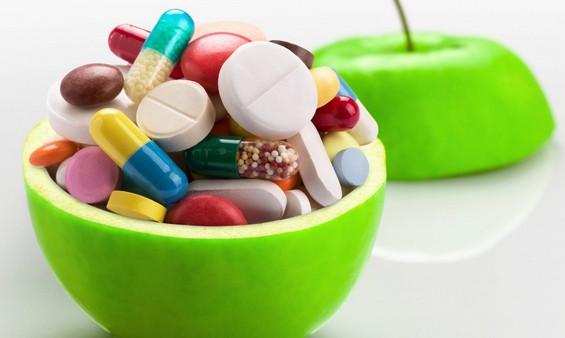
Use
It is best to combine meat dishes with herbs or vegetables, but combined consumption with high-carbohydrate foods impairs the absorption of meat and slows down the digestion process.
Meat purchased in stores or markets, which must have undergone veterinary control, is suitable for feeding pregnant women. It is extremely undesirable to eat sausages and industrially produced sausages. You should also not use ketchup or mayonnaise to improve the taste, which are not only high in calories, but also contain substances harmful to the expectant mother.
Nutrition during pregnancy should not only be tasty, but also healthy, balanced and varied. Meat products are an excellent source of protein, vitamins and microelements, which are necessary for the formation of the fetus and its growth.
Author: Violeta Kudryavtseva, doctor, especially for Mama66.ru
Which meat to choose
When purchasing meat, the first thing you need to pay attention to is the presence of fat on the piece. For example, a cut of meat without streaks of fat contains less saturated fat than a cut with streaks of fat.
When choosing meat at the market, you can ask the seller to trim off excess fat. If the meat is packaged, check the label: expiration date, amount of fat.
When buying poultry meat, preference should be given to skinless meat. This type of meat has less fat.
Try to limit the consumption of ready-made processed meat products: sausages, sausages, pates, cutlets, etc. As a rule, such products are high in fat and salt.
For the above-mentioned reason, it is also better to avoid baking with meat filling.
What should a woman eat during pregnancy?
During pregnancy, you really want to eat. In order not to harm your body and your baby’s body while eating, it is important to adhere to the following rules :
- Dinner should make up approximately 20% of the total daily calorie intake.
- It is recommended to eat dairy dishes for dinner.
- Pregnant women are allowed to have dinner after 19:00, but dinner that is too late should be light.
- The last meal should be approximately 2-2.5 hours before bedtime.
The bulk of your food intake should be taken for breakfast and lunch. To properly select food products, it is important to know how certain substances in its composition act on the body. Thus, proteins contained in meat and fish increase metabolism, excite the nervous system and take longer to digest.
Accordingly, it is better to eat meat and fish dishes in the first half of the day. If in the evening it is impossible to resist meat dishes, then you should give preference to lean boiled meat or steamed fish. Advice! Before going to bed, you are allowed to eat fresh fruit, yogurt or a glass of kefir.
The basis of dinner during pregnancy can be various porridges with milk. Porridges are rich in amino acids important for fetal development, and milk contains the substance taurine, which is necessary for regulating the development of brain tissue, the retina and the baby’s adrenal glands.
As a second course, an excellent option would be vegetable salads seasoned with vegetable oil or a small amount of sour cream.
Interesting article: What do pregnant women eat for breakfast?
